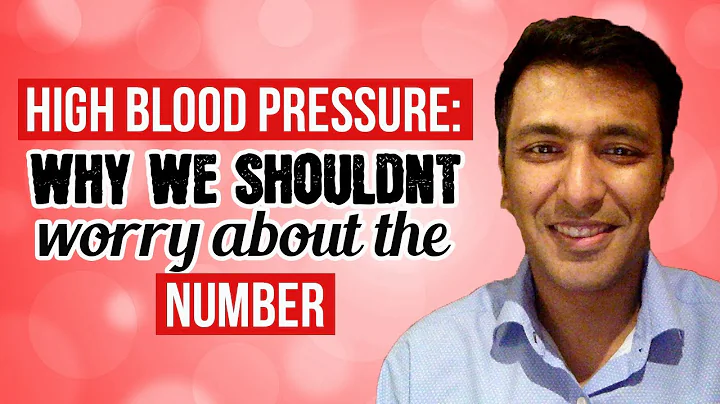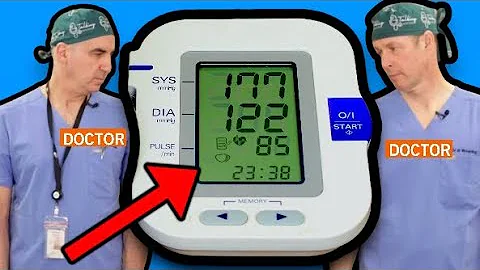There are many hypertensive patients who are unwilling to take antihypertensive drugs for a long time because they are worried about the side effects of the drugs. They even think that taking antihypertensive drugs for a long time will damage the liver and kidneys. In fact, many patients have suffered damage to their liver and kidney functions, which is caused by poor long-term blood pressure control or improper medication. Of course, various antihypertensive drugs have certain side effects and contraindications, and there are considerations when to take them for the best effect. In short, it is important to use them rationally.

What are the side effects of antihypertensive drugs?
(1) Calcium ion antagonist, namely XX Dipine: A few patients may have adverse reactions such as headache, ankle edema, gum hyperplasia and so on.
(2) Angiotensin-converting enzyme inhibitor drug, namely XX Prilim: Cough (dry cough) is a relatively common adverse reaction of this type of drug, and adverse reactions such as angioedema are occasionally seen. It is contraindicated in patients with bilateral renal artery stenosis , pregnancy, breastfeeding, and hyperkalemia patients.
(3) Angiotensin Ⅱ receptor antagonist, namely XX Sartan: adverse reactions are rare, and adverse reactions such as angioedema are occasionally seen. It is contraindicated in patients with bilateral renal artery stenosis, pregnancy, lactation and hyperkalemia.

(4) Thiazide diuretics , such as hydrochlorothiazide , befluthiazide, cyclopentiazide, meclothiazide, chlorthalidone , indapamide , etc.: Take long-term high doses After treatment, some patients may experience decreased blood potassium levels, increased blood uric acid and increased blood sugar levels. Long-term users should pay attention to regular checks of blood potassium, blood sugar and uric acid . People with a history of gout should not take it.
(5) β-blockers, namely XX Lorol: have side effects such as causing bronchospasm , bradycardia . is contraindicated in patients with bronchial asthma and bradycardia. Withdrawal syndrome may occur when β-blockers are suddenly discontinued, which may manifest as blood pressure rising again or even exceeding the pre-treatment level and worsening of tachycardia , angina pectoris , arrhythmia , etc. In severe cases, It may even cause acute myocardial infarction and sudden death. Sudden discontinuation of medication should be avoided especially when taking larger doses.
(6) Traditional Chinese medicine compound preparations: often contain a variety of Western medicine ingredients, which may cause adverse reactions when taken for a long time. Pay attention to the ingredients of the medicines contained in them and do not use them casually.

It should be noted that the side effects of antihypertensive drugs are generally mild and the incidence rate is also very low. Although there are many side effects written on the drug instructions, the incidence rate is often less than 5%. In other words, after one hundred people take the drug, only 5 will experience side effects. Therefore, only after the patient takes antihypertensive drugs can he know whether the side effects have occurred in him.
How to avoid the side effects of antihypertensive drugs?
"Medicines are three parts poisonous" does not tell us that medicines are "poisonous" and "cannot" be taken, but that "medicines cannot be taken casually". Any drug will have side effects or adverse reactions, but if the medication is used rationally and monitored closely, the occurrence of adverse reactions can be completely avoided or reduced. To avoid the side effects of antihypertensive drugs, you should pay attention to the following points when taking antihypertensive drugs:
(1) Individualized medication: Select appropriate antihypertensive drugs according to the specific conditions of each patient . For example, for those with diabetes, and proteinuria, the first choice is prolin or sartan drugs; for those with coronary heart disease and angina pectoris, the first choice is lorol and dipine; for those with a fast heart rate (such as a heart rate of 80 beats/min or above), the first choice is Lor class.

(2) Choose the appropriate drug dose: Start with a small dose, and then increase the drug dose as appropriate according to the therapeutic effect. The higher the dose of a drug, the greater the side effects. Therefore, try to use a smaller effective dose to obtain the best efficacy and minimize adverse reactions.
(3) Choose an appropriate drug combination: For those with moderate to severe hypertension and those whose blood pressure fails to reach the target level after taking one antihypertensive drug, the combination treatment of two or more antihypertensive drugs should be considered Or choose a fixed formula compound preparation.The currently recommended combination treatment options include "Dipine + Diuretic (or Sartan)", "Dipine (or Sartan) + diuretic ", "Dipine + Lorol", etc. Some The fixed formula compound preparation is also a combination of the above ingredients. These combinations not only have synergistic antihypertensive effects, but can also offset the side effects of some drugs.
(4) Pay attention to monitoring and follow-up after medication: After starting to take antihypertensive drugs or changing antihypertensive drugs, the blood pressure control should be monitored and reviewed regularly at the hospital. Any discomfort that occurs after taking the medication should be Tell the doctor, and the doctor will also do some necessary tests based on the patient's medication status, so that adverse drug reactions can be discovered in time and the treatment plan can be adjusted as appropriate.

When is the best time to take antihypertensive drugs?
"Is it better to take antihypertensive drugs in the morning or at night?", "Is it better to take them before or after meals?" These are questions that many patients with high blood pressure are confused about. There is indeed a certain degree of care in when to take antihypertensive drugs. This is mainly related to the change pattern of the patient's blood pressure throughout the day and the type of drugs taken.
People's blood pressure is constantly changing within 24 hours. Generally, blood pressure is higher during daytime activities, especially between 3 and 4 hours after getting up in the morning. The blood pressure will be the highest throughout the day. After that, the blood pressure will slowly decrease. After the lunch break, the blood pressure will rise again, and when resting at night. Blood pressure levels are the lowest, generally about 10% lower than during the day. This waveform of blood pressure changes throughout the day is very similar to the shape of a spoon, which is medically called "spoon-shaped" blood pressure. The blood pressure changes of most hypertensive patients are consistent with a spoon-shaped blood pressure change, but some patients have a more obvious increase in blood pressure in the afternoon or night, showing a "non-spoon-shaped" or "reverse-spoon-shaped" blood pressure change.

In addition, antihypertensive drugs can be divided into long-acting, medium-acting and short-acting antihypertensive drugs according to the duration of drug action. Short-acting antihypertensive drugs are represented by nifedipine and captopril . They can take effect more than 10 minutes after taking them and reach the maximum effect in 1 to 2 hours. However, the effect can only last for 6 to 7 hours. Generally, It needs to be taken three times a day to ensure that blood pressure can continue to decrease throughout the day. Moderately effective antihypertensive drugs include nifedipine sustained-release tablets, , enalapril, , etc., which take effect about 1 hour after oral administration. Generally, the antihypertensive effect can last for 12 to 16 hours, and need to be taken twice a day. Long-acting antihypertensive drugs, such as amlodipine , perindopril , etc., take effect 1 to 2 hours after taking the medicine, and their antihypertensive effect can last for 24 hours or more, and only need to be taken once a day. Therefore, before taking antihypertensive drugs, you should read the drug instructions carefully to understand the usage and dosage of the drug, and take it on time and in the right amount according to the doctor's recommendations.
For most patients with hypertension, long-acting antihypertensive drugs are generally recommended to be taken before breakfast after getting up every morning. This can effectively control the increase in blood pressure after getting up and moving around. Drugs that need to be taken multiple times a day should be taken at a balanced time throughout the day. For example, a short-acting antihypertensive drug that needs to be taken three times a day can be taken once every 8 hours according to your daily schedule, such as at 7:00 and 15:00 every day. Take one dose each at 7:00 and 23:00; while a moderately effective antihypertensive drug taken twice a day can be taken once every 12 hours, such as once at 7:00 and 19:00. It is recommended to try to use long-acting antihypertensive drugs that only need to be taken once a day. Not only are they easy to take and difficult to miss, but they also have a more stable antihypertensive effect, which is conducive to stable blood pressure control 24 hours a day.

For patients whose blood pressure increases in the afternoon, night, and early morning, the medication time can be adjusted as appropriate, and the medication can be taken 1 to 2 hours before the blood pressure rises, or medium and long-acting medications can be added in the afternoon or before going to bed.





















